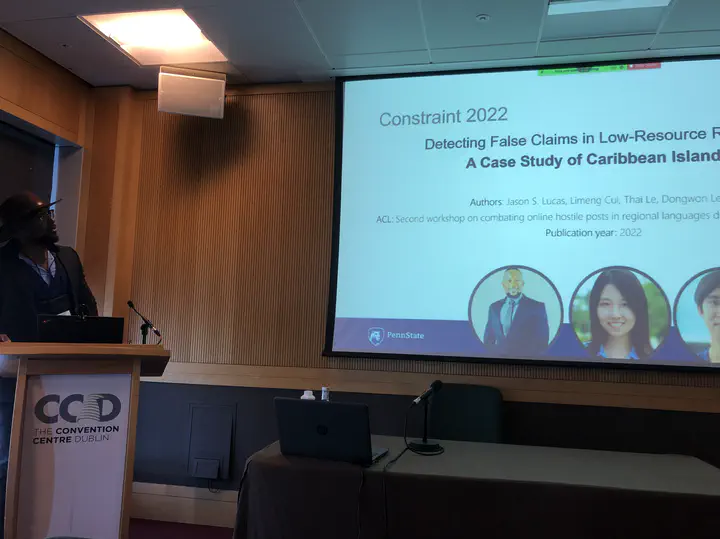 Image credit: Limeng Cui
Image credit: Limeng CuiAbstract
The COVID-19 pandemic has created threats to global health control. Misinformation circulated on social media and news outlets has undermined public trust towards Government and health agencies. This problem is further exacerbated in developing countries or low-resource regions, where the news is not equipped with abundant English fact-checking information. In this paper, we make the first attempt to detect COVID-19 misinformation (in English, Spanish, and Haitian French) populated in the Caribbean regions, using the fact-checked claims in the US (in English). We started by collecting a dataset of Caribbean real & fake claims. Then we trained several classification and language models on COVID-19 in the high-resource language regions and transferred the knowledge to the Caribbean claim dataset. The experimental results of this paper reveal the limitations of current fake claim detection in low-resource regions and encourage further research on multi-lingual detection.
Slides can be added in a few ways:
- Create slides using Hugo Blox Builder’s Slides feature and link using
slidesparameter in the front matter of the talk file - Upload an existing slide deck to
static/and link usingurl_slidesparameter in the front matter of the talk file - Embed your slides (e.g. Google Slides) or presentation video on this page using shortcodes.
Further event details, including page elements such as image galleries, can be added to the body of this page.